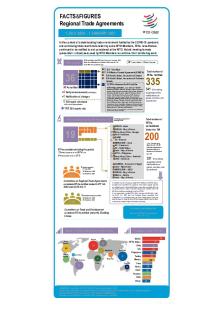To be - There be PDF

| Title | To be - There be |
|---|---|
| Course | Inglés |
| Institution | Universidad Nacional del Nordeste |
| Pages | 4 |
| File Size | 192.7 KB |
| File Type | |
| Total Downloads | 109 |
| Total Views | 201 |
Summary
Download To be - There be PDF
Description
UNIVERSIDAD NACIONAL DEL NORDESTE Facultad de Medicina Cátedra INGLÉS II EL VERBO “TO BE”
Se lo interpreta como “ser” o “estar”.
Es el único verbo que cambia en la 1ra persona del singular. Presente Simple Forma afirmativa
Forma negativa
Forma interrogativa
I am
I
am not / ‘m not
Am
I?
You are
You
are not / aren’t
Are
you?
He
He
She
is
She
he? is not / isn’t
Is
she?
It
It
It?
We
We
we?
You
are
They
You
are not / aren’t
Are
you? they?
They Pasado Simple Forma afirmativa
Forma negative
Forma interrogative
I was
I was not / wasn’t
Was I?
You were
You were not / weren’t
Were you?
He
He
She
was
She
he? was not / wasn’t
Was
she?
It
It
it?
We
We
we?
You They
were
You They
were not / weren’t
Were
you? they?
Future Simple Forma afirmativa
Forma negativa
Forma interrogative
I
I
You
You
you be?
He
He
he be?
She
will be
She
I be?
will not be
Will
she be? it be?
It
It
We
We
we be?
You
You
you be?
They
They
they be?
INTERPRETACIONES DEL VERBO “BE” SER I am a gynaecologist (Soy ginecólogo/a) They will be researchers Serán investigadores ESTAR He was in a coma for a long time before the end Estuvo en coma por un largo tiempo antes de morir This test-tube was not here Este tubo de ensayo no estaba aquí TENER The University is more than 50 years old La universidad tiene más de 50 años They are afraid of the results Tienen miedo de los resultados He is cold Tiene frío TRADUCCIONES ESPECIALES The ambulance was late
La ambulancia llegó tarde / se atrasó It is cold Hace frío Each injection was very expensive Cada inyección costó mucho dinero be + about + (to + base verbo) = estar por / estar a punto de, estar próximo a / ir a The project is about to finish El proyecto está a punto de / va a / está próximo a terminar
THERE BE
“There” seguido por alguna construcción del verbo “be” se traduce por la forma impersonal del verbo “haber” There + be = haber Forma Afirmativa Presente y Pasado
There is
hay
There was
había
There are
hay
There were
habían
Forma interrogativa Presente y Pasado
Is there?
Hay?
Are there?
Hay? (plural)
Was there?
Había/ hubo?
Were there?
Habían / hubieron?
Forma negativa Presente y pasado
There is not
no hay (singular)
There are not
no hay (plural)
There was not
no había / no hubo
There were not
no habían / no hubieron
Otras formas de “there be”
There will be
There has been
habrá (Futuro) ha habido
There have been
han habido
There had been
There will have been
There can be
There may be
There could be
pudo haber / podría/n haber
There might be
pudiera/n haber / pudiese/n haber
There must be
debe/n haber / debería/n haber
There has / have to be
There should be
There ought to be
There is / are to be
There is / are likely to be
había/n habido habrá/n habido puede/n haber podría/n haber
tiene/n que haber debería/n /debiera/n haber tendría/n que haber va/n a haber es probable que haya/n
Cuando “there” está seguido por otros verbos no se traduce.
There remains part of the lab that has not been moved yet. Queda una parte del laboratorio que no ha sido trasladada todavía.
There came a time when humanity had to overcome terrible diseases Hubo una época en la que la humanidad tuvo que superar serias enfermedades
There is a new epidemic in India Hay una nueva epidemia en la India
There has been a blockage of the intestine Ha habido un bloqueo intestinal
There can be a dilation of the bronchial walls Puede haber una dilatación de las paredes bronquiales
There should be another consult Debería haber otra consulta...
Similar Free PDFs

To be - There be
- 4 Pages

Verbo To Be e Verbo There To Be
- 2 Pages

to be advised later
- 1 Pages

VERBO TO BE
- 1 Pages

El verbo \"to be\"
- 2 Pages

SAT Essay Let There Be+Dark
- 2 Pages

BE Going TO - schemi
- 1 Pages

Reasons to Be Pretty Summary
- 3 Pages
Popular Institutions
- Tinajero National High School - Annex
- Politeknik Caltex Riau
- Yokohama City University
- SGT University
- University of Al-Qadisiyah
- Divine Word College of Vigan
- Techniek College Rotterdam
- Universidade de Santiago
- Universiti Teknologi MARA Cawangan Johor Kampus Pasir Gudang
- Poltekkes Kemenkes Yogyakarta
- Baguio City National High School
- Colegio san marcos
- preparatoria uno
- Centro de Bachillerato Tecnológico Industrial y de Servicios No. 107
- Dalian Maritime University
- Quang Trung Secondary School
- Colegio Tecnológico en Informática
- Corporación Regional de Educación Superior
- Grupo CEDVA
- Dar Al Uloom University
- Centro de Estudios Preuniversitarios de la Universidad Nacional de Ingeniería
- 上智大学
- Aakash International School, Nuna Majara
- San Felipe Neri Catholic School
- Kang Chiao International School - New Taipei City
- Misamis Occidental National High School
- Institución Educativa Escuela Normal Juan Ladrilleros
- Kolehiyo ng Pantukan
- Batanes State College
- Instituto Continental
- Sekolah Menengah Kejuruan Kesehatan Kaltara (Tarakan)
- Colegio de La Inmaculada Concepcion - Cebu







